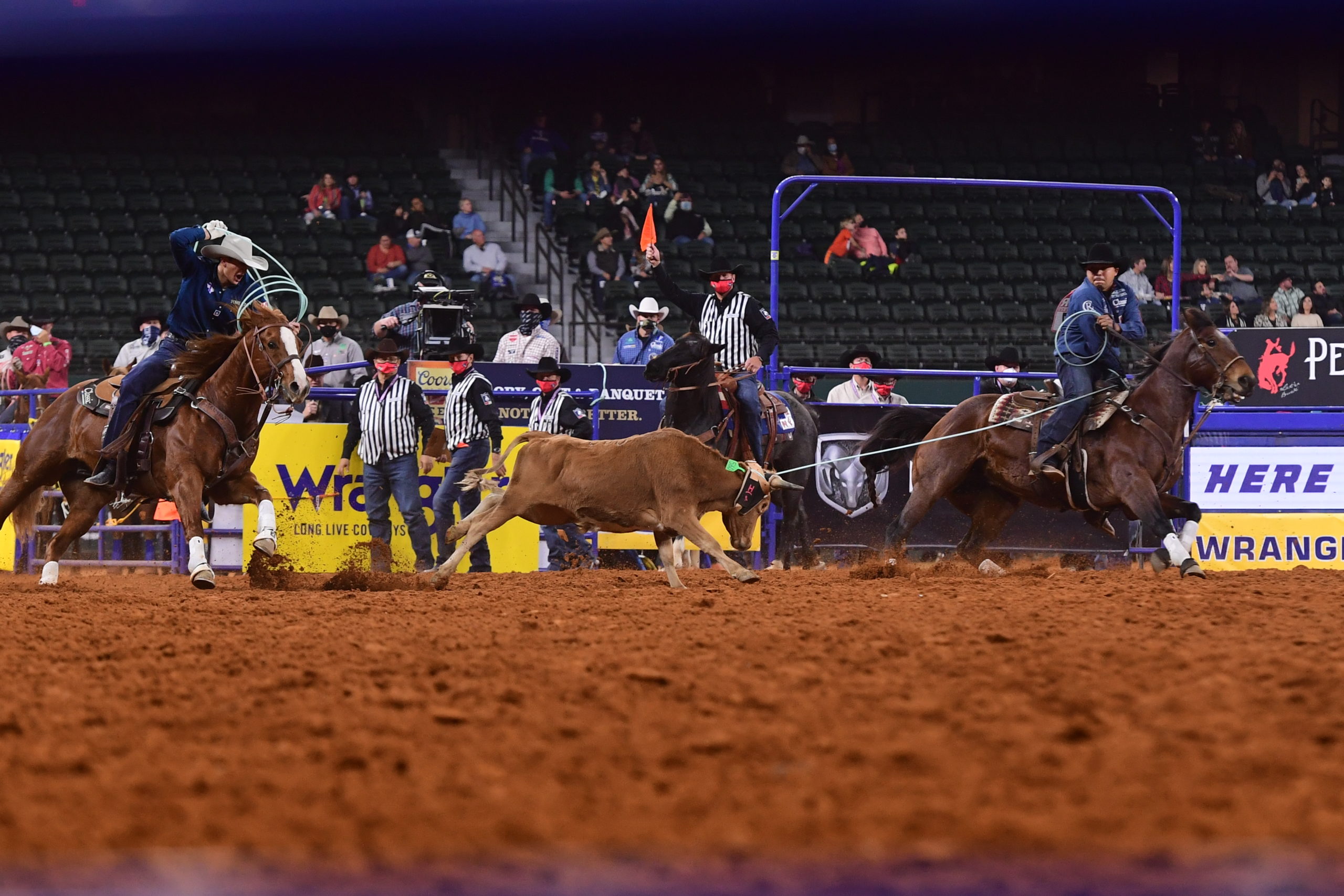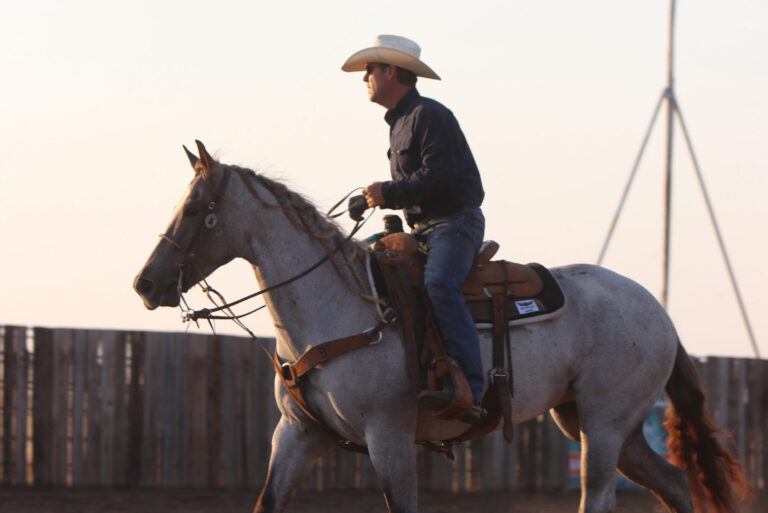Throughout my career, I’ve learned that I have to have a short memory. I’ve had to learn how to forget my mistakes and move on. I’ve learned not to dwell on negative stuff and to always be positive. No matter how south it’s going, I’ve got to go through one run and one step at a time. As soon as I get over with that one run or one step, I forget about it and think about the next one. A lot of people hold onto it. They still talk about mistakes they made or problems they’ve had. Living that way didn’t help me.
THROWBACK: Navajo Nation’s Latest Roping Phenom: Erich Rogers
I used to be terrible about dwelling on mistakes. I always thought about all the bad stuff–the misses. I carried on like that, and I finally realized I needed to change the ways of thinking about the negative stuff. When I was roping with Kory Koontz my first year, we were outstanding. The second year it was great, but then we hit a slump. We had bad blood there for a little bit, and then we snapped out of it. We made the Finals and finished strong. We both decided to go our separate ways, and to this day, we’re good friends. But during that time, I had to learn right then and there to keep pushing on and keep doing what I’m doing and remember the good ones. I remember the good runs and don’t talk about the bad runs.
WATCH: Erich Rogers on Roping.com
I didn’t realize, really, that I’d gotten such a short memory until one year at the NFR, when I missed to put Cory (Petska) and I out of the average and out of contention for the championship. I was mad, but I rode off and watched the rest of the performance from the back alley and thought about what I’d done wrong. I didn’t really speak to anyone or say anything about missing. Maybe three or four months later, Chad Masters came up to me at a rodeo and told me he brought me up at one of his schools. He said he explained to his students that I never did talk about it or complain about that miss at the NFR, and that I was the only guy who acts like that—who didn’t sit back there talking about that miss.
Cory is like that, too. We both know what we do wrong. We know we can’t catch them all. If we can do it right in the practice pen, we can do it right in the arena. We have 75 of these rodeos to go to, and we get to run a lot of steers, so it will come around. What we practice for and what we do in the practice pen makes it all reaction when it all comes down to it. It’s all memory of what goes on. We practice as hard as we do so that when it’s all on the line, we can let our reactions take over. n











